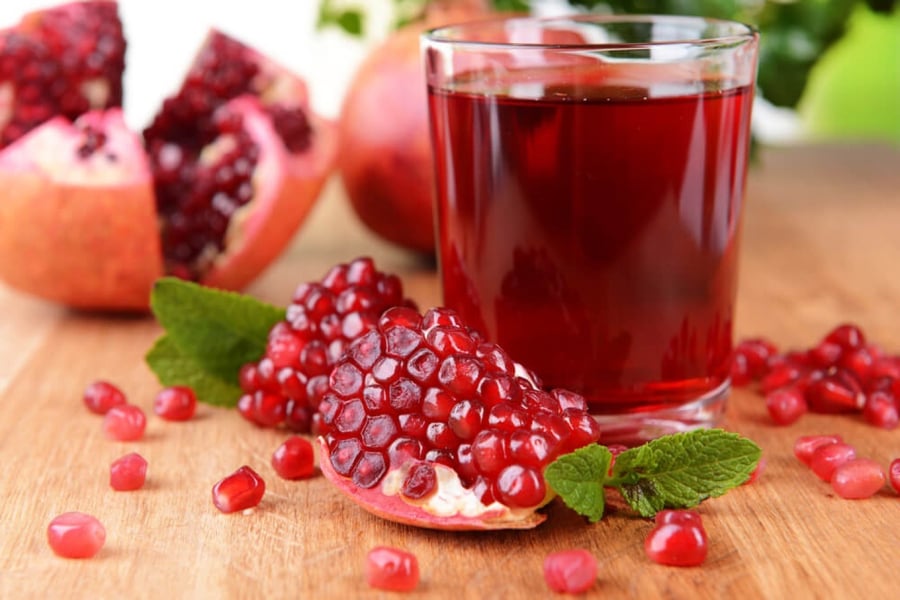Pomegranates are a wonderfully healthy fruit, packed with powerful antioxidants and anti-inflammatory properties. They are also an excellent source of fiber, fatty acids, vitamins, and minerals. Julia Zumpano, a dietitian at Cleveland Clinic, refers to pomegranates as a “superfood” due to their exceptional nutritional benefits.
Theresa Gentile, another dietitian, highlights the fruit’s anti-inflammatory qualities, which are well-documented in health research. Zumpano adds that pomegranates are rich in antioxidants, protecting cells from damage and environmental harm, such as pollution and smoke.
The antioxidants in pomegranates also aid in repairing damaged cells and preventing cancer growth. But the benefits don’t stop there. Consuming pomegranates, including the seeds and juice, can reduce the risk of liver, heart, and kidney diseases.
Furthermore, pomegranates provide essential nutrients such as fiber, fatty acids, and vitamins and minerals. Just half a cup of pomegranate seeds offers 72 calories, 1.5 grams of protein, 1 gram of fat, 16 grams of carbohydrates, and 3.5 grams of fiber.
Health Benefits of Pomegranates
Pomegranates, their seeds, and juice boast notable health effects, especially in terms of their anti-inflammatory properties, due to the high content of plant compounds. According to Gentile, flavonoids, a type of plant chemical found in pomegranates, have antioxidant effects, helping to combat free radicals and potentially preventing cancers such as skin, prostate, and colon cancer.
“The beautiful color of pomegranates comes from anthocyanins (a type of flavonoid), which also contributes to their health benefits,” Gentile shares. Anthocyanins are also present in other deep red and blue fruits and vegetables like blueberries, purple broccoli, and carrots.

Additionally, the plant compounds in pomegranates can protect the liver from non-alcoholic fatty liver disease, aid in wound healing, and exhibit antibacterial properties. Some of these compounds also boost the immune system, with many experts believing they may help lower the risk of cancer.
Pomegranates are also an excellent source of fiber for digestive health, helping to maintain regular bowel function. The fiber in pomegranates is also beneficial for cardiovascular health and supports blood sugar control.
Gentile also points out that pomegranates contain anti-inflammatory fatty acids, which are great for cardiovascular health, with about 30% of the weight of their seeds being fatty acids. While we usually think of avocados and fish oil when it comes to fatty acids, pomegranates are a perfect choice as well.
Finally, pomegranates provide several important micronutrients, including potassium, calcium, phosphorus, magnesium, and iron, as well as vitamins C and folate, ensuring a good intake of essential nutrients.
Are Pomegranate Juices Good for Health?
Experts say that pomegranate juice, being derived from the fruit, offers similar health benefits. There is a wealth of positive research on the effects of pomegranate juice on health.
Studies show that pomegranate juice is closely linked to lowering blood pressure and preventing plaque buildup in arteries, making it especially beneficial for cardiovascular health. Systematic reviews also indicate that those who consume pomegranates or their juice may experience improved cardiovascular health, including lower blood pressure and improved coronary artery and atherosclerotic conditions.

However, it’s important to note that pomegranate juice tends to be more concentrated than the seeds, meaning each serving will contain more sugar and may have added sugars. Additionally, when drinking the juice, you miss out on the fiber you would get from the seeds.
Therefore, as with other fruit and vegetable juices, experts recommend consuming pomegranate juice in moderation. A serving of about 6 ounces (170 ml) of pomegranate juice per day is reasonable. Zumpano also suggests using the seeds as part of a meal, such as sprinkling them on Greek yogurt, fresh cheese, or salads. With their crunchy texture and sweet-tart flavor, pomegranate seeds add color and interest to these dishes.
“Uncover the Ultimate Hair Tonic: A Natural Remedy for Lustrous Locks and Healthy Liver and Kidneys”
Hair loss and premature greying are common concerns for many. Fortunately, Vietnam boasts a precious herb that is a remedy for these hair woes and more. Step forward, Vietnamese mulberry (Ficus vietnamensis) – more commonly known as Ha Thu O. This humble plant is the secret to lush, dark locks and offers a host of health benefits, including liver and kidney support and reduced blood fat.





































